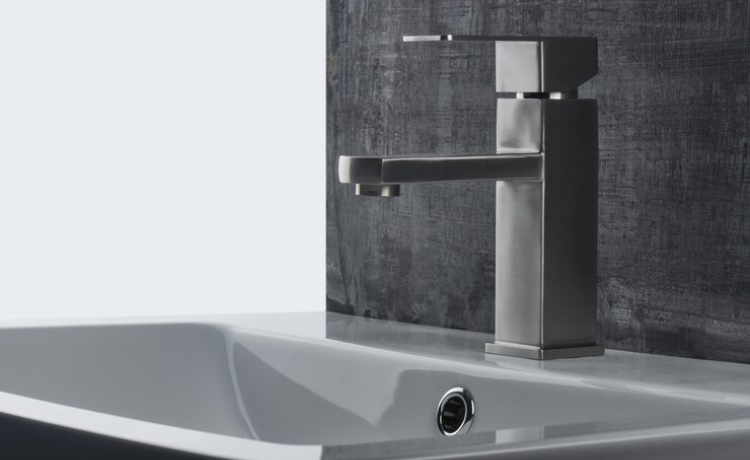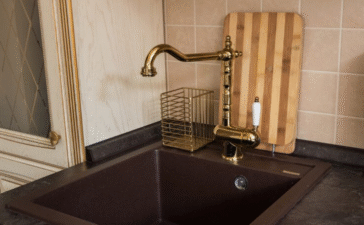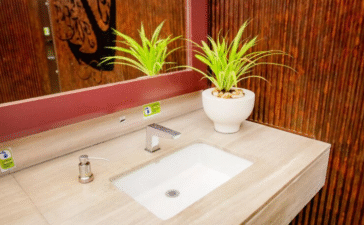Clean, safe water is essential for health and well-being, yet many of us don’t think about the quality of water coming out of our bathroom faucets. While kitchen water filters are common, bathroom sink filters often go overlooked. However, filtering bathroom water can significantly enhance not only your skin and hair health but the overall quality of your household water. Whether you’re battling hard water, chlorine, or other contaminants, a bathroom sink filter can be a game-changer. Here’s everything you need to know about these essential tools, their benefits, and how to pick the right one for your needs.
What Are Bathroom Sink Filters and How Do They Work?
A bathroom sink filter is a small water filtration system designed specifically for faucets or under-sink installation. These devices act as barriers to trap impurities, ensuring every drop of water you use is clean and safe. Whether it’s washing your face, brushing your teeth, or rinsing your hair, the benefits of filtered water are immense.
Types of Bathroom Sink Filters
There are two primary types of bathroom sink filters:
- Faucet-Mounted Filters: Easily attachable to the bathroom faucet, these filters are compact and affordable. They work by diverting tap water through a carbon or ceramic filter that captures contaminants.
- Under-Sink Filters: Installed beneath the sink, these high-performance systems often feature multi-stage filtration, delivering cleaner water directly to your faucet.
How Filters Improve Water Quality
Bathroom sink filters are effective in removing common culprits like chlorine, heavy metals (such as lead and mercury), and other contaminants lurking in tap water. By eliminating these impurities, they not only ensure safer water but also improve its taste and reduce unpleasant odors.
Benefits of Using Bathroom Sink Filters
The perks of bathroom sink filters go beyond just water quality. From healthier skin to better hair, these devices can have a profound impact on your daily routines.
Improved Skin Health
Unfiltered water often contains chlorine, minerals, and other impurities that can cause irritation, dryness, and flare-ups, especially for those with sensitive skin. Using a bathroom sink filter reduces these irritants, promoting healthier and softer skin. No more worrying about redness or patchy dryness after washing your face.
Better Hair Care
Tap water with high mineral content, also known as hard water, causes hair to become dull, dry, and prone to breakage. Bathroom sink filters combat the negative effects of hard water, leaving your hair cleaner and less prone to damage from chemical buildup.
Convenience for Small Spaces
Faucet-mounted filters are a fantastic solution for small bathrooms where space is limited. Their easy installation process and space-saving design make them an excellent choice for renters or those looking for minimal hassle.
Popular Bathroom Sink Filter Brands and Models
To help you make an informed decision, here are some top-rated brands and models to consider:
Faucet-Mounted Filters
- PUR Faucet Filters are renowned for their simple installation process and advanced carbon filtration technology, which effectively removes heavy metals and chlorine.
- Brita Water Filters offer a balance of affordability and performance, ideal for anyone looking to improve water taste and quality.
Best Under-Sink Filters
For those seeking high-performance filtration, systems like the Aquasana 3-Stage Max Flow provide a reliable solution. These filters use advanced multi-stage technology to rid your water of up to 99% of harmful contaminants.
360° Rotating Faucet Filters
If flexibility is a priority, consider models with adjustable water flow, such as 360° rotating faucet filters. These allow you to direct water precisely where it’s needed, making them perfect for multi-purpose bathroom tasks.
How to Choose the Right Bathroom Sink Filter for Your Needs
Selecting the best filter depends heavily on your water quality and specific needs. Here’s what to look out for:
Consider Your Water Quality
Start by testing your tap water for impurities like chlorine, lead, heavy metals, or excessive minerals. Home water testing kits are easily available or you can consult your water provider for a quality report. This analysis will guide you towards a filter designed to address your specific concerns.
Filter Certifications to Look For
Look for NSF or WQA-certified filters, which meet high safety and performance standards. These certifications ensure your water filter has undergone rigorous testing to effectively remove contaminants.
Installation and Maintenance Considerations
Ease of use matters. Choose a filter that aligns with your preferences for installation and maintenance. Faucet-mounted filters are typically user-friendly and require minimal effort, whereas under-sink systems may require professional setup but offer advanced filtration.
Cost of Bathroom Sink Filters
Understanding the cost implications of a sink filter will help you choose wisely.
Initial Investment vs Long-Term Costs
Faucet-mounted filters are budget-friendly, starting at $20–$50, while under-sink systems typically range from $100 to $300. While the initial investment in an under-sink system may seem high, their replacement cartridges are usually less frequent, balancing out the long-term costs.
Cost-Effective Options
For budget-conscious consumers, brands like Brita offer affordable solutions without compromising quality. These filters deliver clean, crisp water that’s easier on your skin, hair, and wallet.
Common Issues and How to Fix Them with Bathroom Sink Filters
Filters generally work seamlessly, but occasional issues can arise. Here’s how to handle them:
Reduced Flow Rate
A decrease in water pressure often indicates the filter is clogged with contaminants. Cleaning or replacing the filter cartridge should restore normal flow.
Filter Replacement
Regularly replacing your filter ensures it continues operating efficiently. Most manufacturers recommend replacing cartridges every three months, but this varies based on usage and water quality.
Contaminant Build-up
If water quality doesn’t improve even after filter replacement, check for limescale or contaminant build-up. Cleaning the hardware or reaching out for troubleshooting support may solve the issue.
The Key to Healthier Water and a Happier You
Bathroom sink filters are more than a luxury; they’re a practical solution for better water quality, skin and hair health, and everyday convenience. Whether you’re battling chlorine, hard water, or other impurities, these essential filters can enhance your daily routines in ways you hadn’t thought possible.
Take control of your water quality today. Start by testing your tap water and choosing a filter tailored to your needs. From affordable faucet-mounted filters to high-performance under-sink systems, the right solution is out there waiting for you.












